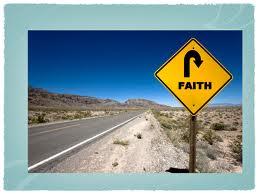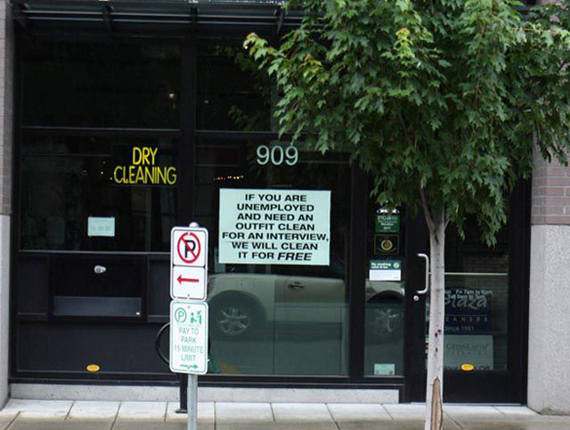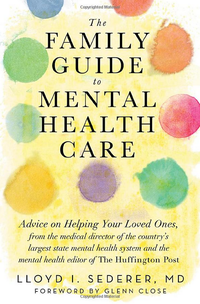
A Catholic faith reduced to mere baggage, to a collection of rules and prohibitions, to fragmented devotional practices, to selective and partial adherence to the truths of faith, to occasional participation in some sacraments, to the repetition of doctrinal principles, to bland or nervous moralizing ... would not withstand the trials of time.
-- Fifth General Conference of The Bishops of Latin America and The Caribbean, 2007
I often think about what seems to me to be a spiritual thirst amongst my contemporaries, myself included. My perspective is as a man born of Eastern European origins and raised an American Jew who holds no religious affiliation.
How might we seek, no less obtain, a faith in forces greater than ourselves in a post-modern world where the commercialization of just about everything, scientism (science as faith), and media and celebrity inundation barrage our thinking and values? Who speaks with authenticity and heart to our needs, including seeing beyond the microcosm of our individual selves to a life of purpose and contribution where we understand humanity as concern for others and can experience a sense of continuity beyond our brief moment on this planet?
Devotion to Judeo-Christian religious rules and practices, established a very long time ago for Christians and far longer for Jews, may have in the past kept the faith and the faithful together but doesn't seem to be doing very well today. Instead, separation (and alienation) from organized religion or its opposite, a redoubled orthodoxy to a set of ancient pieties, characterize the too limited choices made by so many.
What if institutional doctrine, proffered by any religion, is not sufficient to order our lives, to give us meaning on earth and to satisfy our spiritual hunger? What then might be?
Pope Francis seems to have a pretty good sense of what that is. The new Pope said:
The church with which we should be thinking is the home of all, not a small chapel that can hold only a small group of selected people. We must not reduce the bosom of the universal church to a nest protecting our mediocrity.
The new Pope raised the bar by saying: "The Church's pastoral ministry cannot be obsessed with the transmission of a disjointed multitude of doctrines to be imposed insistently." (NYT, 9.20.2013, p. A 1, 10)
His wonderfully alarming message is one of inclusion: It is a message asking us to serve those in need -- with empathy, not self-indulgence. It is a call for asking how we can help, not about our asking for help. It is an insistence on justice and for remedying disparities. Pope Francis' popularity is a good measure of the salience of his message -- which so many have been waiting for.
Fortunately, he is not alone. I periodically go to religious services for their moments of quiet and reflection. Too often I leave feeling the faith leader missed an opportunity to reach the congregants and to advance the cause of humanity. But I am also fortunate to know some faith leaders who, like the Pope, dare to show the way.
Take a look at this Yom Kippur sermon by a remarkable rabbi in California, Steven Carr Reuben: It is the 8th video down (titled 2012/5773 Yom Kippur Eve). Its message of forgiveness and the power of love to transform hurt and resentment is all the more powerful because it comes in the form of a personal story about this Rabbi's wife. Listen to how courage and determination are needed for any of us to do what is right before we run out of time. Yom Kippur ("Yom" means day and "Kippur" means atonement) is the most holy of Jewish holidays and provides Jews a moment to not only ask for God's mercy but also to be merciful themselves.
Another special moment of faith I witnessed is illustrated by (but was not taped) a Mass celebrated by a Norbertine Abbot, Frère Joel, in a nursing home in the rural mountains of France. Many of the mass attendees were debilitated and hurting, and some were confused from dementia. Also present were nuns, nurses, aides and visitors from the community. What I witnessed was a lesson in compassion -- not so much by words but by how inclusion and tenderness can be extended to the most in need. And in so doing realize how the act of giving creates faith.
These examples occurred during Jewish and Catholic worship services. They speak to the spiritual needs that now pervade our globe. Each shows a path to a more modern faith: They exemplify ways of reaching a greater humanity than conventional religious doctrine can offer. Yet if these are indeed roads to achieve a spiritually enriched life they call for more, not less, of us.
A paradox is revealed, and offers grace, when we feel empty and do something of value we feel more full, confident, attached and proud. The paradox is that when we care for others we care for ourselves. The great gift of giving -- and a too well-kept secret -- is that the giver is so well-served.
Giving, unfortunately, is often characterized as encouraging dependence and passivity. I think that is not actually giving; it is what happens when giving ironically does not meet the needs of the person meant to be served. On the contrary, in fact, dignity and strength emerge when a person is helped to do more for himself, when he or she can take a step towards self-sufficiency and the capacity to give back -- to contribute as well.

The Prayer of Saint Francis (the 13th century saint the new pope chose to name himself after) -- even if the prayer is likely the creation of an early 20th century French priest -- is a poetical rendering of the paradoxical nature of our lives, and the path to faith. Translated from the French, it reads:
Lord, make me an instrument of Thy peace;
Where there is hatred, let me sow love;
Where there is injury, pardon;
Where there is error, truth;
Where there is doubt, faith;
Where there is despair, hope;
Where there is darkness, light;
And where there is sadness, joy.
O Divine Master, Grant that I may not so much seek
To be consoled as to console;
To be understood as to understand;
To be loved as to love.
For it is in giving that we receive;
It is in pardoning that we are pardoned;
And it is in dying that we are born to eternal life.
 Dr. Sederer's new book for families who have a member with a mental illness is The Family Guide to Mental Health Care (Foreword by Glenn Close).
Dr. Sederer's new book for families who have a member with a mental illness is The Family Guide to Mental Health Care (Foreword by Glenn Close).
www.askdrlloyd.com http://www.askdrlloyd.com
The opinions expressed here are solely mine as a psychiatrist and public health advocate. I receive no support from any pharmaceutical or device company.
Copyright Dr. Lloyd Sederer
